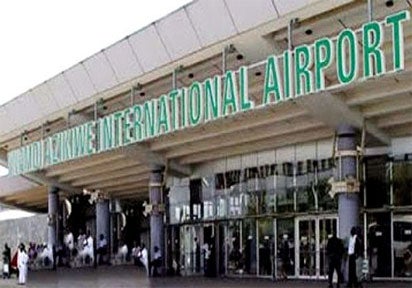Agency Report
Some passengers at the Nnamdi Azikiwe International Airport (NAIA), Abuja have condemned the increase in airfare during the yuletide.
The passengers made this known in separate interviews with the News Agency of Nigeria (NAN) on Saturday in Abuja.
They said that it was just necessary for them to travel by air to celebrate Christmas with relatives as travelling by air is “fast and safe”.
A passenger, Kayode Enitan, who expressed displeasure on the increase in the ticket price, observed that the upsurge in passengers travelling could be a result of Christmas among other reasons.
“I have determined to celebrate this Christmas with my family. For the past four years, they celebrated in Lagos, while I celebrated both Christmas and New Year in Abuja because of work.
“About three days ago, I booked with Arik Air a return ticket from Abuja to Lagos for N170, 000. That is N85 for one way. God will save us in this country, “ he said.
Evelyn Chukudi, a passenger, who frowned at skyrocketing airfare, said that passengers had not felt any impact on addressing the scarcity of aviation fuel.
According to her, the local airline operators have been referring to JETA1 as the major reason for the increase in airfares.
“Truly, they just keep increasing the ticket prices. I am going to Port-Harcourt with my husband. The fare was about N85,000 each. We actually booked a few days ago with Air Peace.
“This is too much. It is not about your choice of airline. The local airlines` fares are seemly similar, “ she said.
Another passenger, Muhammed Kabiru, was also disheartened over the increase in ticket prices.
According to Mr Kabiru, he chose to travel by air to Kano due to comfort, safety and timeliness.
“Big thanks to President Muhammadu Buhari, who paid us our salary on time.
“The airfare now is too high. I paid N90,000 one way from Abuja to Kano; I booked with MAX Air yesterday. I just need to travel to catch fun and enjoy my leave in Kano,” he said.
NAN checks at both the arrival and departure sides in the Abuja airport showed that passengers at the departure were extremely populated, while passengers at the arrival were scanty.
NAN















